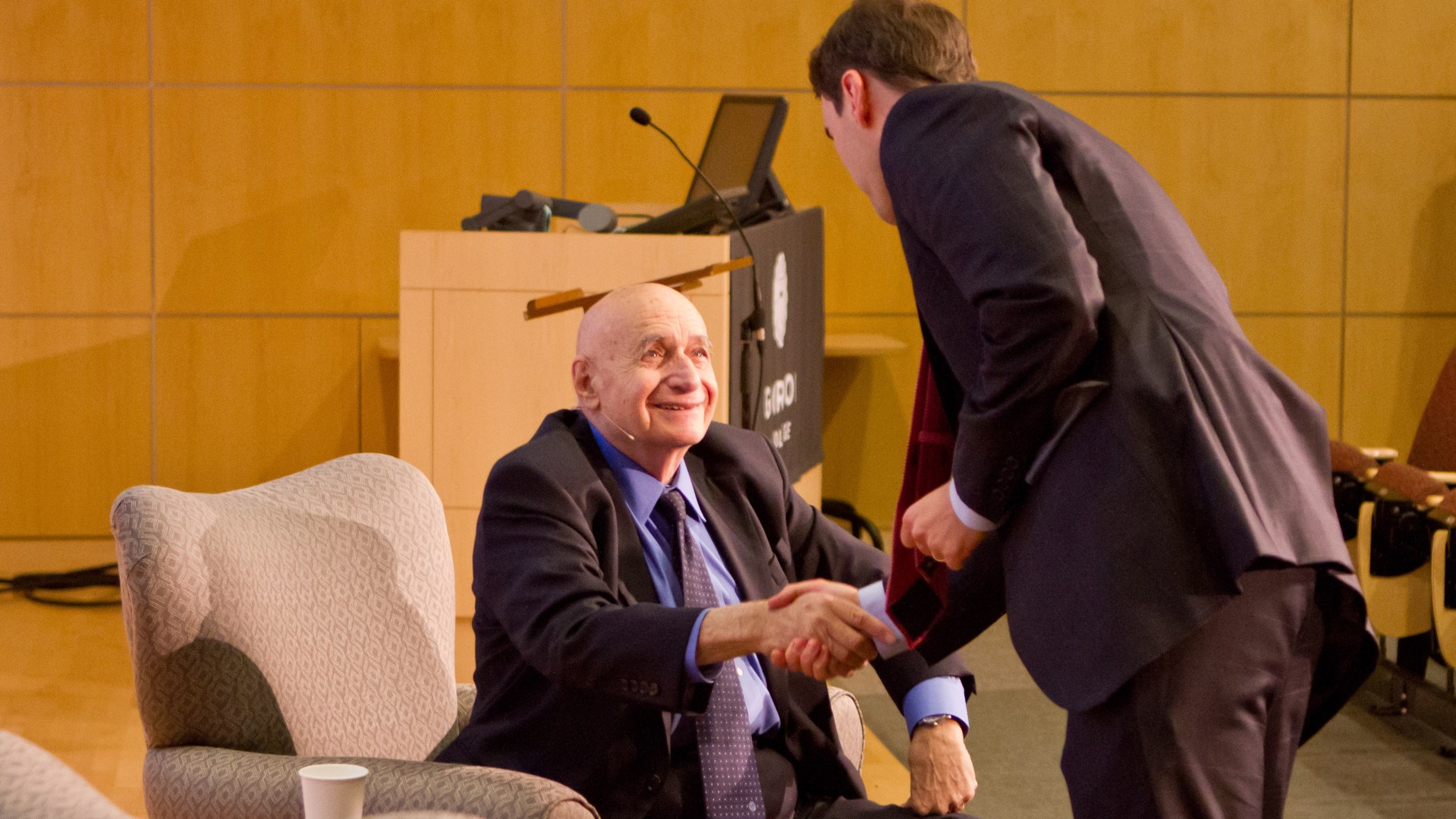In 1966, a Viennese-born sociologist, not quite 40 years old, produced a scholarly work that changed the world. Or more precisely, it changed the way we see and shape the world.
The Social Construction of Reality, named one of the top five sociology publications of the 20th century by the International Sociological Association, became required reading for graduate students around the world soon after its publication. Moreover, Peter Berger (who coauthored the book with Thomas Luckmann) became one of the most recognized social scientists of the last century.
On June 27, Berger passed away at his home in suburban Boston, concluding a lifetime of scholarly influence and a career that made him one of the most notable scholars of his generation.
It was Berger’s fascination with religion that made him and his work so significant to evangelical Christians. He called himself an “incurable Lutheran,” and his liberal Protestant theology might have placed him at odds with many evangelical leaders 100 years ago. But in our increasingly pluralistic world, Berger’s sympathetic treatment of spirituality and faith made him something of a rock star among Christ-following academics.
In the 1960s and 1970s, Berger’s work underscored the importance of social structures—and how they come to be through human actions (what social scientists refer to as individual “agency”). Culture, he argued, is most powerful when it is taken for granted. In The Sacred Canopy (1967), Berger explained how religion helped people make sense of the world by providing a “sheltering” tent under which all of life could make sense.
But over time (in Europe, tracing an historical arc from the 1755 Lisbon earthquake to the mechanized violence of the two World Wars), the “plausibility structure” of the Christian faith, to use Berger’s term, had begun to lose its salience for modern societies. He argued that they were experiencing an inexorable trend toward secularization as modernization gained the upper hand. Berger was following a long tradition within social science, going back to Max Weber’s theme of the “disenchantment” of the Western world.
But Berger was a classic liberal, open to changing his mind and convictions when he could be persuaded otherwise. As he witnessed the resilience of faith in places like the United States and the Global South, Berger eventually disavowed the linear argument about modernization that had come to be known as the “secularization hypothesis.”
Indeed, once convinced that secularization was not inevitable, Berger turned his attention to some of the most remarkable examples of resurgent religion in our time—topics like global Pentecostalism and evangelical scholarship in the American academy.
To be sure, he was always more comfortable speaking as a social scientist who studied religion than as a person of faith himself (or, as my literary agent once put it, as the ornithologist, not the bird). Yet anyone who spent much time with Berger over the last decade discovered his increasing admiration for, and sympathy with, the convictions of conservative Christians.
For many of us who spent hours discussing Berger’s thinking in graduate seminars and plodding through the dense paragraphs of The Social Construction of Reality (the prose of which was as exciting as the book’s title), having this intellectual luminary interested in our branch of Christianity was a vote of confidence.
I experienced Berger’s interest and advocacy as a junior faculty member when my doctoral dissertation was published by Oxford University Press. The political scientist Alan Wolfe critically reviewed the book in The New York Times, and—so it seemed to me and more than a few colleagues—dismissed the work without appearing to have read much of it. Timothy Shah, a political scientist trained at Harvard who was working with Berger on a research project at the time, encouraged the eminent sociologist to read my book and make his own judgment.
I was incredibly gratified when Shah sent me a copy of the rebuttal letter Berger sent to the Times. His rejoinder was never published, but he made sure that several notable sociologists received a copy. It was a generous act by a legend in my field. To this day, I thank God for the kindness that crusty Austrian American modeled for me back then, at a moment when my professional career was just beginning.
A prolific scholar, Berger influenced many Christian thinkers—among them Os Guinness, Richard Mouw, and his former graduate student James Davison Hunter. I will always be grateful for a phone call from Guinness a few years ago when he learned that Berger still wanted to work with students, even though he could not travel very far. I began working with several of my Gordon colleagues, including professor Kaye Cook, provost Janel Curry, and trustee couple David and Suzy Young, to create a role for him on our campus as a distinguished visiting scholar. With their help and the generosity of a few donors who understood the strategic value of Berger’s influence, we were able to bring the eminent scholar to Gordon to interact with our students and faculty for a couple of years. It was a wonderful opportunity for all of us, including Berger, whose mind remained as sharp as ever.
Berger leaves behind a rich legacy—as a scholar, teacher, and public intellectual, certainly, but more particularly as someone who was always willing to change his mind and challenge his own assumptions and beliefs. He was one who pursued new insights and the people who could help develop them, wherever they were to be found.
Some of these qualities are unusual and countercultural in the academy today. But that never bothered Peter Berger.
D. Michael Lindsay serves as president and professor of sociology at Gordon College. He is the author ofFaith in the Halls of Power and View from the Top.









